-
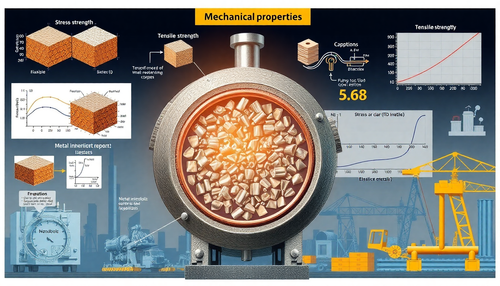
Propriedades Mecânicas dos Metais: Entendendo a Resistência e Durabilidade
Frequentemente, os materiais estão sujeitos a uma força externa quando são usados. Engenheiros mecânicos calculam essas forças, e cientistas de materiais determinam como os materiais se deformam ou...
-
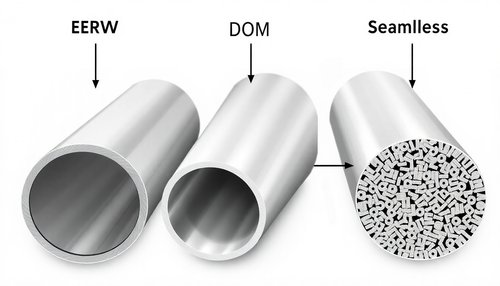
Entendendo os diferentes tipos de Tubos de Aço: ERW, DOM e Sem Costura
Este mês, examinamos as diferenças entre ERW, DOM e tubos sem costura. Tubos ERW (Electric Resistance Welded) ERW se refere a um processo de soldagem que envolve soldagem por pontos e por costura, ...
-
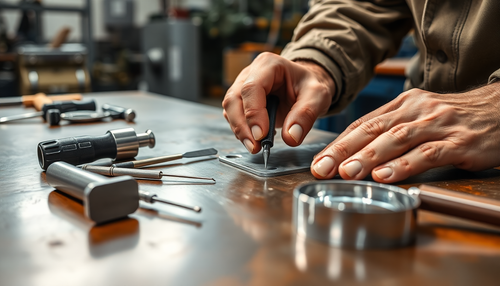
Como verificar a dureza do metal sem uma máquina Rockwell
Por muito tempo, pensei que a única maneira de verificar corretamente a dureza do metal era com uma máquina de teste Rockwell adequada. Felizmente, aprendi algumas outras técnicas simples e eficaze...
-

Incentivos Fiscais de R$ 3,8 bilhões em 2025: Programa Mover na Indústria Automotiva
Em um cenário de constante evolução e desafios, a indústria automotiva brasileira recebe um impulso significativo com a implementação do programa Mover. Esse decreto regulamentador prevê a concessã...
-
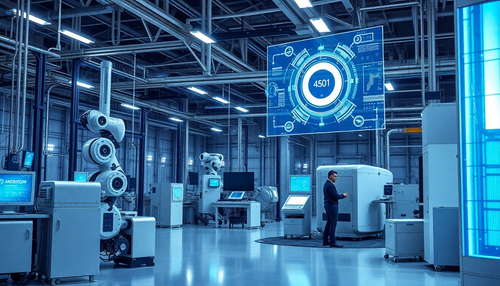
Futuro da Indústria Automotiva: Tendências Tecnológicas Transformando o Setor
O setor industrial está passando por uma transformação acelerada, impulsionada por avanços tecnológicos que estão remodelando a maneira como as empresas operam, produzem e interagem com seus client...
-

Futuro da Mobilidade Automotiva no Brasil: Veículos Elétricos e Autônomos em 2025
Em 2025, a indústria automotiva brasileira está vivenciando uma transformação significativa, com o crescimento acelerado dos veículos elétricos, híbridos e autônomos. Essa revolução na mobilidade e...
-
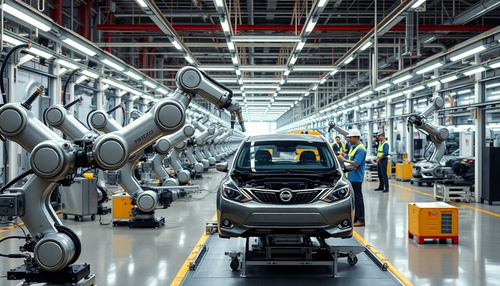
A Revolução Tecnológica na Fábrica da Nissan em Resende
A Nissan, uma das principais montadoras do mercado automotivo brasileiro, acaba de concluir uma impressionante modernização de sua fábrica localizada em Resende, no estado do Rio de Janeiro. Esse i...
-

Setor Automotivo Brasileiro registra crescimento de 8% nas vendas no primeiro trimestre
O setor automotivo brasileiro tem vivido um momento de recuperação e crescimento nos últimos meses. De acordo com os dados mais recentes, as vendas de veículos no país registraram um aumento de 8% ...
-

Rodovias de Aço: A Revolução da Recarga Elétrica em Movimento
A revolução dos veículos elétricos está em pleno andamento, e com ela surge uma nova demanda: a necessidade de uma infraestrutura de recarga eficiente e acessível. É neste cenário que as rodovias d...
-
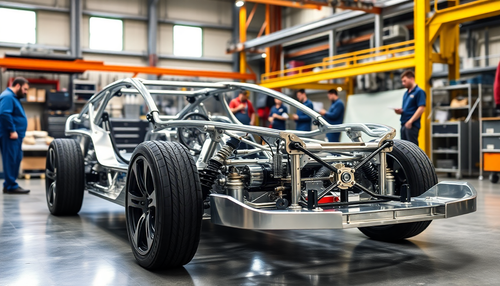
Chassis de Aço Inteligente: A Revolução da Segurança Autônoma
Em um mundo em constante evolução, a indústria automotiva está à beira de uma transformação revolucionária. Com o avanço da tecnologia, os carros autônomos estão se tornando uma realidade cada vez ...
-
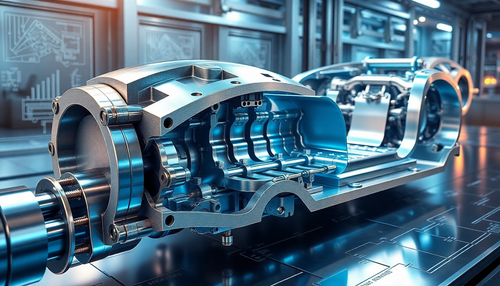
Aços Avançados de Alta Resistência (AHSS) Revolucionando a Indústria Automotiva
A indústria automotiva está constantemente em busca de soluções inovadoras que permitam a fabricação de veículos mais leves, seguros e eficientes. Nesse contexto, os Aços Avançados de Alta Resistên...
-

Aço Reciclado impulsiona a Revolução das Motocicletas Elétricas
A indústria de motocicletas está passando por uma transformação revolucionária, com a adoção cada vez maior de veículos elétricos. Essa mudança é impulsionada não apenas pela crescente conscientiza...
-

Aço na Mobilidade Sustentável: Veículos Leves e Eficientes
A indústria automotiva enfrenta um desafio crucial: reduzir as emissões de carbono e melhorar a eficiência energética dos veículos, sem comprometer a segurança e o desempenho. Neste contexto, o aço...
-

Lecar, a nova estrela da indústria automotiva brasileira
A Lecar, uma empresa brasileira que está conquistando seu espaço no setor automotivo, acaba de anunciar planos ambiciosos para se tornar uma das principais fabricantes de veículos no país. Recentem...
-

A FIAT consolida sua liderança global em 2024
A FIAT confirma sua posição como marca líder da Stellantis em volume de vendas, dominando mercados importantes, como Brasil, Itália, Turquia e Argélia, com o Fiat Strada e Panda se destacando entre...
-

Tendências do Mercado Automotivo em 2024: Rumo a uma Mobilidade Mais Sustentável e Conectada
Uma análise de tendências de consumo no mercado automotivo em 2024 destaca a busca por marcas confiáveis, menor depreciação e custos reduzidos de manutenção, enquanto híbridos e elétricos despontam...
-

Revolução da Mobilidade Urbana: Ônibus Autônomos sem Mapas
No campo sonoro da robótica, a inovação constante é essencial para atender às necessidades de um mundo em rápida evolução. Um dos avanços mais fascinantes é a criação de sistemas de transporte públ...
-

Maior fábrica de Nióbio do mundo impulsiona a inovação em Baterias de Carregamento Ultrarrápido
Araxá, em Minas Gerais, é agora o local da maior fábrica de nióbio do mundo especializada em baterias de carregamento ultrarrápido. A unidade tem capacidade para produzir 2.000 toneladas por ano do...
-

Soluções poliméricas inovadoras apoiam a mineração de Lítio Sustentável
À medida que a demanda global por lítio continua a aumentar, impulsionada pelo aumento de veículos elétricos e tecnologias de energia renovável, os desafios de manutenção enfrentados pelas operaçõe...
-

Bio-Híbrido: Solução eficiente para a indústria automotiva
A chegada do Bio-Híbrido
Batizado de Bio-Híbrido, trata-se de um recurso eficiente, ajuda a economizar combustível e aumenta os preços dos SUVs compactos Pulse e Fastback em apenas R$ 2.000, ou sej...
-

Nissan e Mitsubishi Formam Nova Joint Venture para Mobilidade Autônoma e Elétrica
As gigantes japonesas Nissan e Mitsubishi, que estão ligadas por meio de suas participações na aliança com a Renault, formarão uma nova joint venture para fornecer serviços relacionados à direção a...
-

BID e BID Invest ampliam financiamento verde e climático na América Latina e Caribe
O Banco Interamericano de Desenvolvimento (BID) e seu braço para o setor privado, BID Invest, anunciaram recentemente uma ampliação significativa do foco na sustentabilidade climática e ambiental e...
-

Crescimento impressionante da Indústria Automotiva brasileira em 2024
O ano de 2024 tem sido um período de grande crescimento e otimismo para a indústria automotiva brasileira. Segundo os dados divulgados pela Associação Nacional dos Fabricantes de Veículos Automotor...
-

Toyota e Suzuki unem forças para lançar novo SUV Elétrico em 2025
Em uma movimentação estratégica no mercado automotivo, as gigantes Toyota Motor Co. e Suzuki Motor Corp. anunciaram uma colaboração histórica no segmento de veículos elétricos (EVs). O resultado de...
-

Mercado Global de Veículos Elétricos rumo ao Trilhão de Dólares
O mercado global de veículos elétricos (VEs) está em forte ascensão e deve atingir US$ 1 trilhão em receita até 2028, com um crescimento projetado de 27% nas vendas. Mesmo com obstáculos como infra...
-

Futuro dos Veículos Elétricos e Mobilidade: Desafios e oportunidades no Brasil
No final de 2022, a União Europeia local o acordo "Fit For 55", com o objetivo de encerrar as vendas de carros novos emissores de CO₂ na Europa até 2035. O anúncio fez com que vários montadoras glo...
-

Detectando falhas de baterias de Veículos Elétricos antes que seja tarde demais
As baterias em veículos elétricos podem falhar rapidamente, às vezes pegando fogo sem muito aviso. O Sandia National Laboratories está trabalhando para detectar essas falhas cedo e fornecer tempo d...
-

Bentley atrasa meta de oferecer apenas Veículos Elétricos para 2035
A marca britânica de ultra-luxo, pertencente ao grupo Volkswagen AG, adiou novamente sua meta de oferecer apenas veículos elétricos a bateria (BEVs) em cinco anos, agora para 2035. No entanto, plan...
-

O Primeiro Caminhão Híbrido Conceito do Mercado Nacional
A Volkswagen Caminhões e Ônibus e a Suspensys, uma das empresas de autopeças do Grupo Randon, está desenvolvendo o primeiro caminhão conceito híbrido do mercado nacional. O protótipo foi apresentad...
-

FPT Industrial investe R$ 127 milhões em novas tecnologias de propulsão
A FPT Industrial, marca integrante do Grupo Iveco dedicada ao design, produção e venda de motores, informou que irá investir R$ 127 milhões em pesquisa e desenvolvimento de novas tecnologias de pro...
-

Reciclagem de Baterias de Veículos Elétricos: O Papel de liderança da China
A China talvez esteja em uma posição privilegiada quando se trata de adoção de veículos elétricos (VE), respondendo por mais de 60% das vendas mundiais em 2022. Essa posição dominante a torna um pa...
-

Solução Inovadora para preservar a privacidade na internet dos Veículos
Cientistas afirmam ter desenvolvido uma ferramenta de inteligência artificial para consolidar a privacidade dos veículos e de seus motoristas. Como preservar a privacidade da chamada Internet dos V...
-

Avanço significativo em Baterias de Íons de Lítio: Cátodos ricos em Lítio com Vanádio
À medida que a demanda por veículos elétricos e sistemas de armazenamento de energia aumenta, as baterias de íons de lítio precisam fornecer densidades de energia mais altas a custos mais baixos. E...
-

Vendas de veículos automotores no Brasil atingem novo recorde em 2024
As vendas de veículos automotores no Brasil continuam em alta, com um crescimento expressivo de 16,4% no acumulado de janeiro a outubro de 2024 em comparação ao mesmo período do ano anterior. Segun...
-

Vendas de veículos no Brasil crescem 21,6% em outubro de 2024
A indústria automotiva brasileira registrou um desempenho positivo em outubro de 2024, com um aumento de 21,6% nas vendas de veículos em comparação com o mesmo mês do ano anterior. De acordo com os...
-

Reduzindo os Custos de Teste de Chips Automotivos com Machine Learning
Os chips acabados que vêm da fundição são submetidos a uma bateria de testes. Para aqueles destinados a sistemas críticos em carros, esses testes são particularmente extensos e podem adicionar de 5...
-

A Integração de Veículos Automatizados: Promovendo a Confiança dos Passageiros com Explicações Oportunas
A integração de veículos automatizados promete vários benefícios para a mobilidade urbana, incluindo maior segurança, redução de congestionamento de tráfego e acessibilidade aprimorada. Veículos au...
-
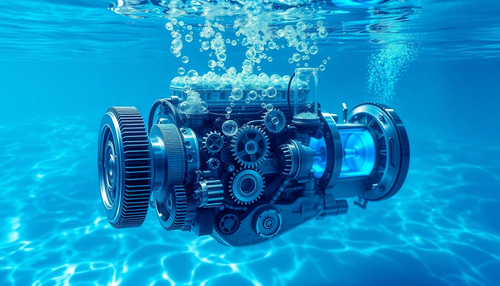
Motor a água da Toyota: Revolução Silenciosa da Mobilidade
A Toyota, uma das líderes do setor automotivo, acaba de apresentar uma inovação que pode redefinir o futuro dos transportes. Um motor movido a água, altamente eficiente e ecológico, promete não só ...
-

Toyota do Brasil anuncia expansão de fábrica em Sorocaba
A Toyota do Brasil acaba de anunciar uma grande expansão de sua fábrica em Sorocaba, no interior de São Paulo. Este investimento de R$ 11 bilhões faz parte do plano de investimentos da empresa para...
-

Combustíveis: Entendendo as Características e Propriedades
Combustíveis são quaisquer materiais que armazenam energia potencial em formas que liberam energia térmica ao queimar em oxigênio. O poder calorífico do combustível é a quantidade total de calor li...
-

Ascensão da BYD: Como a marca Chinesa está desafiando a Tesla
A BYD, marca que começou com a produção de baterias e hoje desafia gigantes globais, está mudando o cenário da indústria automotiva com uma trajetória que exemplifica o poder da inovação e da expan...
-
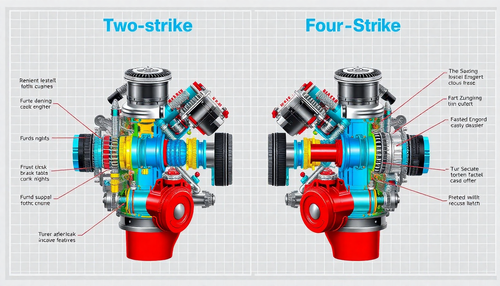
Motores de 2 Tempos vs. 4 Tempos: Entendendo as diferenças
Ao comparar o motor de 2 tempos com o motor de 4 tempos, é essencial entender o que diferencia esses tipos de motor. Cada um tem benefícios, aplicações e características de desempenho exclusivos, t...
-

Ecossistema de Aplicativos: 5 coisas essenciais para se ter dominio
Os ecossistemas de aplicativos estão se expandindo e se tornando mais complexos com o surgimento de aplicativos baseados em IA, esforços de modernização e novas iniciativas. Embora eu não ache que ...
-

Um avanço na ciência dos materiais pode ajudar a entregar uma nova geração de baterias acessíveis
A busca por baterias mais eficientes e acessíveis é um desafio constante na indústria de energia. Recentemente, uma equipe internacional de pesquisadores liderada por químicos da Universidade de Gl...
-

Caracterização de Baterias de Íons de Lítio com Ânodos de Silício usando Espectroscopia de RMN
Pesquisadores do Laboratório Nacional Argonne do Departamento de Energia dos EUA (DOE) desenvolveram e demonstraram um conjunto inovador de métodos para avaliar o envelhecimento a longo prazo em cé...
-

Fiat solidifica liderança no mercado Automotivo brasileiro em 2024
O mês de outubro de 2024 foi marcado por uma expressiva liderança da Fiat no mercado automotivo brasileiro. Com 20,9% de participação e 51.867 unidades emplacadas, a marca consolidou sua posição ta...
-

Carros Elétricos vs. Combustíveis Renováveis: Dilema da Sustentabilidade
Com recorde de vendas em 2024, os carros elétricos são promovidos como solução verde, mas especialistas questionam o impacto ambiental das baterias e a complexidade da reciclagem, abrindo espaço pa...
-

Jeep no mercado brasileiro: Liderança nos principais segmentos de SUVs
A Jeep encerrou o mês de outubro com 12.014 emplacamentos, marcando seu melhor desempenho de vendas nos últimos três meses. Com este resultado, a montadora atinge um total de 99.930 unidades comerc...
-

Waymo e o uso do Gemini na Direção Autônoma
A decisão da Waymo de utilizar o Gemini em seu sistema de direção autônoma é significativa por várias razões. Primeiro, ela representa uma mudança no uso de IA generativa e modelos de linguagem de ...
-
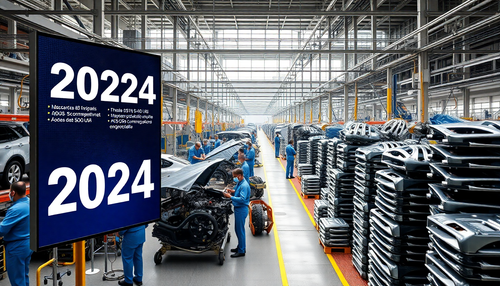
Indústria de Autopeças Brasileira projeta crescimento de 8% em 2024
A indústria de autopeças brasileira está se preparando para um ano de 2024 promissor, com projeções de faturamento revisadas e altas significativas em diversos segmentos. De acordo com o Sindicato ...
-

Stellantis acelera transformação com foco em eletrificação e adaptação aos consumidores
Em 2024, a Stellantis vem solidificando sua posição no mercado automotivo global com uma série de lançamentos estratégicos e foco em tecnologias multienergia. As novas plataformas STLA, desenvolvid...
-

Importância da Estamparia na Indústria Automotiva
Os carros são chamados de "máquinas que mudam o mundo". Como a indústria automobilística tem uma forte correlação industrial, ela é considerada um símbolo importante do nível de desenvolvimento eco...
-

Curso com Planilhas Automáticas para Engenharia Civil
Planilhas Automáticas para Engenharia Civil: Cálculo e Dimensionamento Simplificados
Na engenharia civil, precisão e eficiência são vitais para o sucesso de qualquer projeto. No entanto, o process...
-

Curso de Power BI para Engenharia Civil
Power BI na Engenharia Civil: Da Introdução às Aplicações Avançadas
No cenário competitivo da engenharia civil e da construção, a capacidade de gerenciar e analisar dados se tornou uma habilidade ...
-
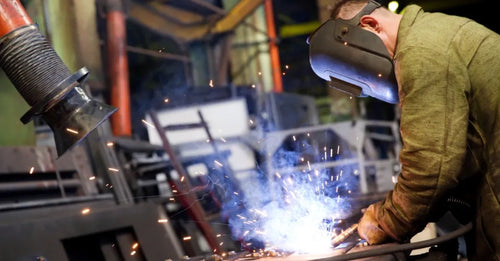
Cursos de Soldagem: Programa Completo para Iniciantes e Profissionais
Qualificação Profissional em Soldagem: Cursos Estratégicos para Atuar com Sucesso na Indústria
A soldagem é uma das habilidades mais críticas e requisitadas na indústria, especialmente em setores...
-
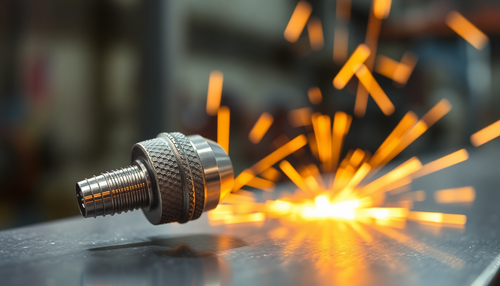
Como prolongar a Vida Útil do Bico de Contato na Solda MIG
A solda MIG (Metal Inert Gas) é uma técnica amplamente utilizada na indústria e construção devido à sua eficiência, versatilidade e qualidade dos resultados. No entanto, um componente crucial neste...
-
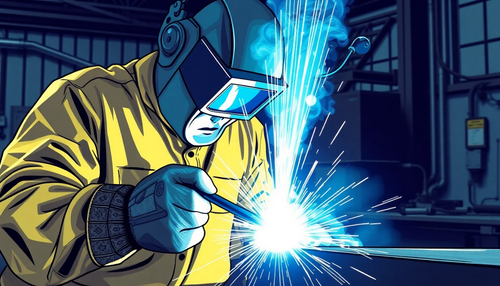
Como manter o Arco Elétrico Estável durante a Soldagem
A soldagem é uma técnica essencial em diversas indústrias, desde a construção civil até a fabricação de automóveis. No entanto, um dos desafios mais comuns enfrentados pelos soldadores é a manutenç...
-

Como Eliminar Respingos Excessivos na Soldagem MIG
A soldagem MIG (Metal Inert Gas) é uma técnica amplamente utilizada na indústria e construção, conhecida por sua eficiência e versatilidade. No entanto, um dos desafios comuns enfrentados pelos pro...
-
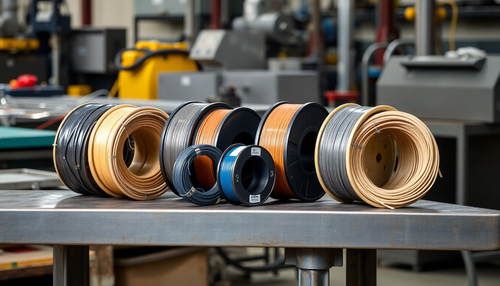
Como escolher o arame correto para solda MIG
A escolha do arame correto para solda MIG é fundamental para obter resultados de alta qualidade e eficiência no processo de soldagem. Cada tipo de arame possui características específicas que afeta...
-
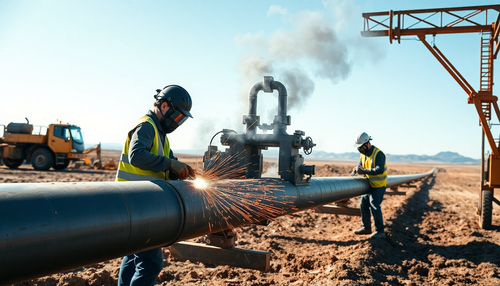
Soldagem de Tubulações em Campo: Preparação e Sequenciamento
A soldagem de tubulações em campo é um desafio único que requer habilidades especializadas e planejamento cuidadoso. Diferente da soldagem em ambiente controlado de oficina, a soldagem em campo enf...
-
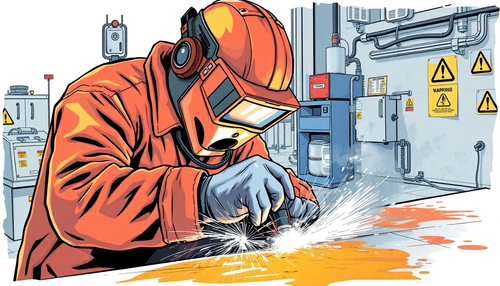
Soldagem em Peças Pintadas: Evitando Problemas e Garantindo Segurança
A soldagem é uma técnica fundamental em diversos setores industriais, desde a fabricação de automóveis até a construção civil. No entanto, quando se trata de soldar peças que já foram pintadas, é e...
-
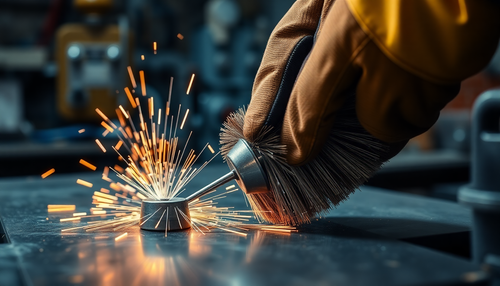
Escovas de Aço na Soldagem: Preparação e Acabamento Perfeitos
A soldagem é uma técnica fundamental em diversas indústrias, desde a construção civil até a fabricação de maquinário pesado. No entanto, para obter resultados de alta qualidade, é essencial prepara...
-
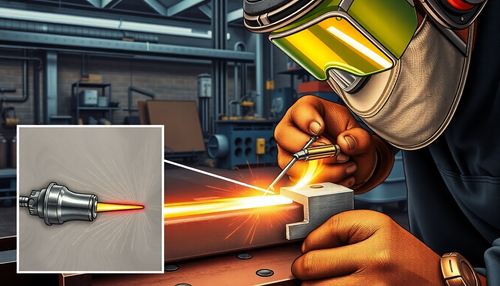
Entendendo o Processo de Brasagem: Quando e Como Utilizá-lo
A brasagem é uma técnica de união de metais que se diferencia da solda tradicional por fusão. Enquanto a solda envolve o derretimento e a mistura dos metais, a brasagem utiliza uma liga de metal de...
-
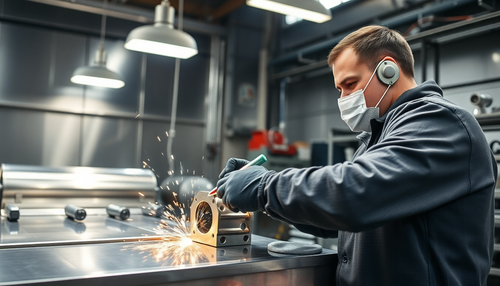
Importância da Limpeza Pós-Soldagem em Aço Inox e Alumínio
A soldagem é uma técnica fundamental em diversos setores industriais, desde a construção civil até a fabricação de equipamentos. No entanto, após o processo de soldagem, é essencial realizar uma li...
-
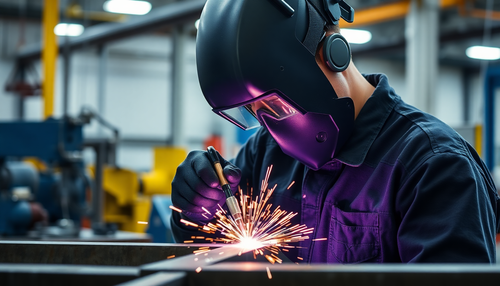
Identificando e Corrigindo a Falta de Penetração na Solda
A integridade estrutural de uma junta soldada depende crucialmente da qualidade da penetração da solda. Quando a penetração é insuficiente, a resistência da união fica comprometida, podendo levar a...
-
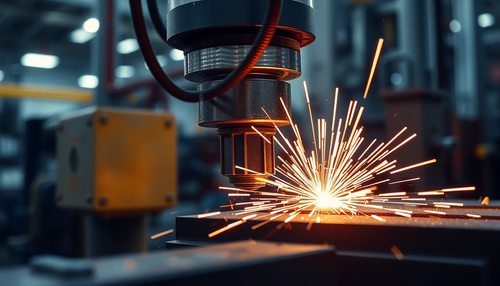
Processo de Soldagem por Resistência Elétrica: Entendendo os Detalhes Técnicos
A soldagem por resistência elétrica, também conhecida como solda por ponto ou spot weld, é uma técnica amplamente utilizada na indústria, especialmente na fabricação de automóveis e estruturas metá...
-
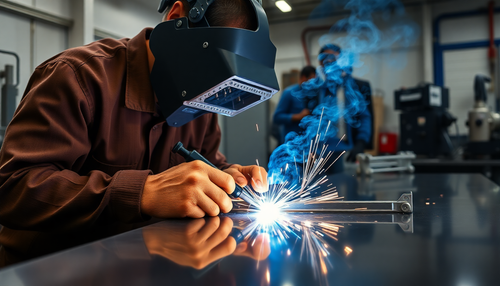
Soldagem em Aço Inoxidável: Evitando os Erros Mais Comuns
A soldagem de aço inoxidável é uma tarefa delicada que requer atenção aos mínimos detalhes. Diferente da soldagem de aços carbono, o processo de união de peças em aço inoxidável envolve desafios es...
-
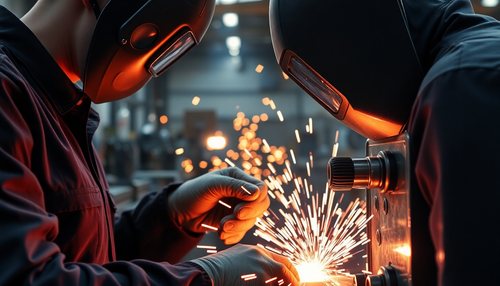
Importância do Controle da Velocidade de Avanço na Soldagem
A soldagem é uma técnica fundamental em diversas indústrias, desde a construção civil até a fabricação de automóveis. No entanto, para obter resultados de alta qualidade, é essencial dominar divers...
-
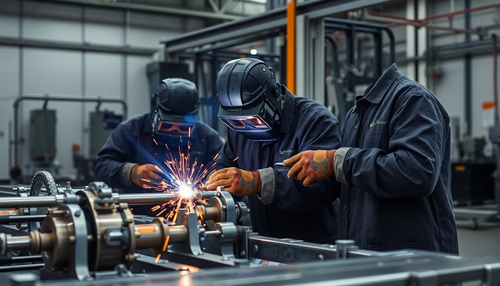
Soldagem de Titânio: Superando Desafios e Impulsionando a Inovação
O titânio é um material fascinante, conhecido por sua resistência, leveza e biocompatibilidade. No entanto, a soldagem desse metal nobre apresenta desafios únicos que exigem técnicas especializadas...
-
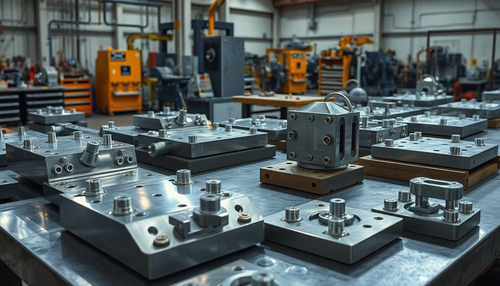
Como usar gabaritos e fixações para garantir soldagens precisas
A precisão é fundamental quando se trata de soldagem. Peças mal alinhadas ou deslocadas podem resultar em juntas defeituosas, reduzindo a integridade estrutural e a aparência final do trabalho. Fel...
-
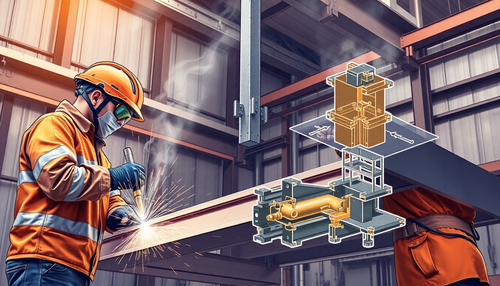
Técnicas Essenciais de Ponteamento para Montagem de Estruturas Metálicas
A montagem de estruturas metálicas é uma etapa crucial no processo de construção, exigindo técnicas precisas e cuidadosas para garantir a estabilidade e o alinhamento adequado das peças. Uma das té...
-
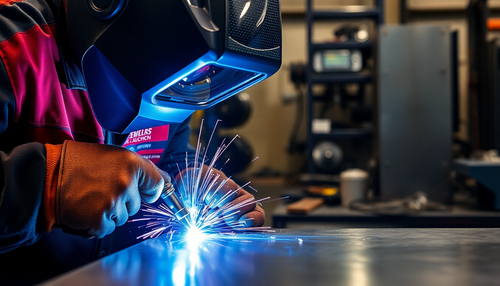
Poça de Fusão: Técnicas Essenciais para Soldagem TIG Perfeita
A soldagem TIG (Tungsten Inert Gas) é uma técnica versátil e precisa, amplamente utilizada na indústria e construção. No entanto, manter a poça de fusão sob controle pode ser um desafio, especialme...
-
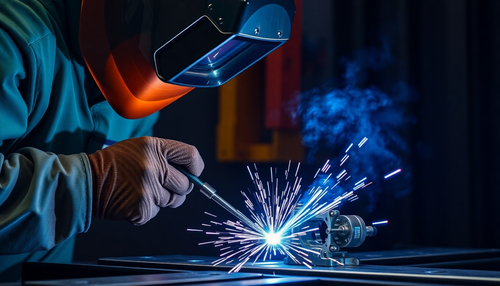
Soldagem a Plasma: Tecnologia para a Indústria e Construção
A soldagem a plasma, também conhecida como PAW (Plasma Arc Welding), é uma técnica de soldagem avançada que vem revolucionando a indústria e a construção. Essa tecnologia oferece uma solução eficie...
-
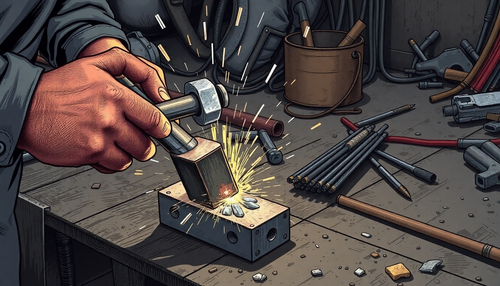
Importância do Martelo de Escória na Soldagem com Eletrodo Revestido
A soldagem com eletrodo revestido é uma técnica amplamente utilizada na indústria e construção civil, sendo essencial para a união de metais e a fabricação de estruturas robustas. No entanto, o pro...
-
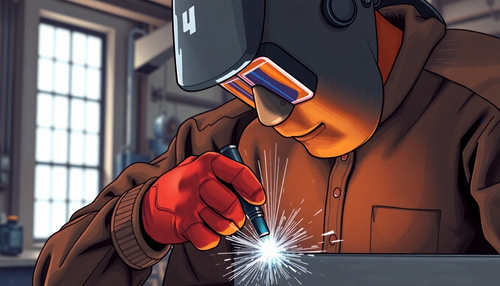
Como fazer uma Solda Filetada com Qualidade Profissional
A solda filetada, também conhecida como solda em ângulo, é uma técnica amplamente utilizada na indústria e na construção civil para unir peças metálicas em ângulo. Essa técnica é essencial para a f...
-
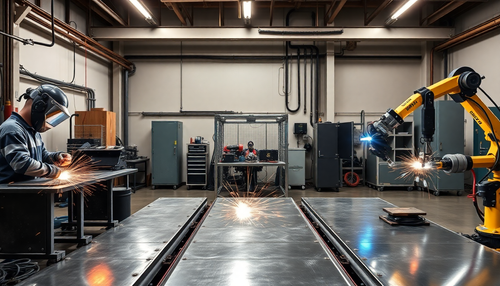
Entendendo os Tipos de Soldagem: Manual, Semiautomática e Automática
A soldagem é uma técnica fundamental em diversos setores industriais, desde a fabricação de automóveis até a construção civil. No entanto, nem todas as técnicas de soldagem são iguais. Existem três...
-
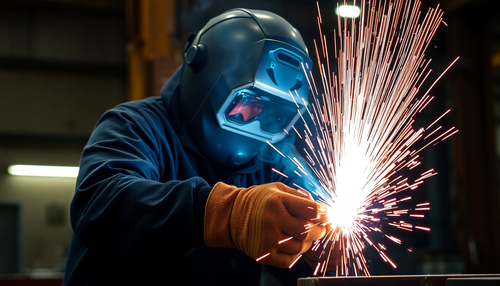
Entendendo a Escorificação na Soldagem: Causas, Impactos e Soluções
A soldagem é uma técnica fundamental em diversos setores industriais, desde a construção civil até a fabricação de máquinas e equipamentos. No entanto, durante o processo de soldagem, um fenômeno i...
-
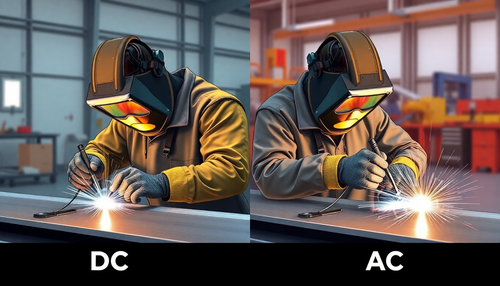
Diferença entre solda TIG DC e TIG AC: quando usar cada uma
A solda TIG (Tungsten Inert Gas) é uma técnica amplamente utilizada na indústria e construção, conhecida por sua precisão, qualidade e versatilidade. No entanto, existem duas variantes principais d...
-
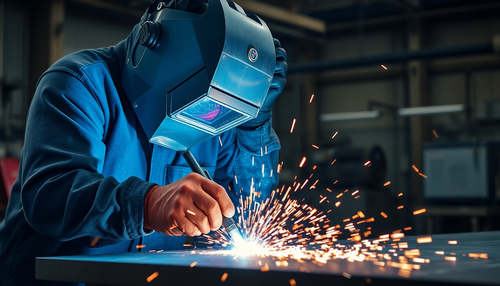
Soldagem em Aço Carbono Espesso: Desafios e Soluções
A soldagem de aço carbono espesso é um desafio constante para profissionais da indústria e construção. Essas peças exigem cuidados especiais durante o processo de soldagem, a fim de garantir a inte...
-
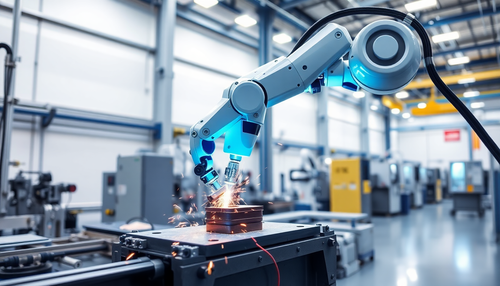
Como a Soldagem Robotizada Transforma a Indústria
A evolução tecnológica tem impulsionado transformações significativas em diversos setores industriais, e a soldagem robotizada é um exemplo claro dessa realidade. Essa técnica avançada vem se conso...
-
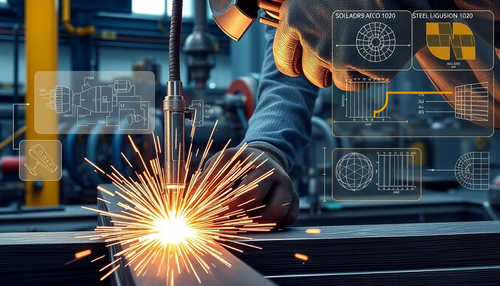
Soldar Aço 1020 corretamente: Evite trincas e Garanta Qualidade
O aço SAE AISI 1020 é um dos materiais mais utilizados na indústria e construção civil devido à sua versatilidade e custo-benefício. Esse aço carbono de baixa liga é amplamente empregado em estrutu...
-
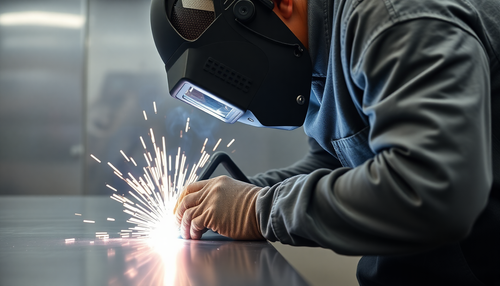
Como Soldar Aço Inox com TIG Sem Contaminação: Um Guia Passo a Passo
A soldagem de aço inoxidável é uma tarefa delicada que requer atenção especial para evitar contaminação e obter um acabamento limpo e profissional. A técnica de soldagem TIG (Tungsten Inert Gas) é ...
-
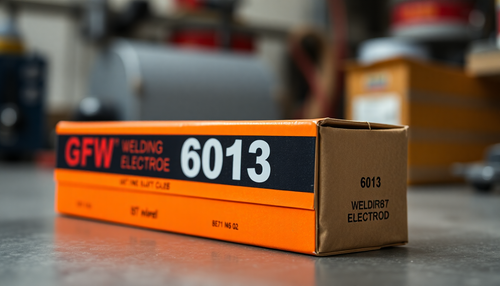
Como identificar e utilizar o Eletrodo 6013
O eletrodo 6013 é um dos tipos mais comuns e versáteis de eletrodos de soldagem utilizados na indústria e construção civil. Sua popularidade se deve às suas características únicas, que o tornam ide...
-
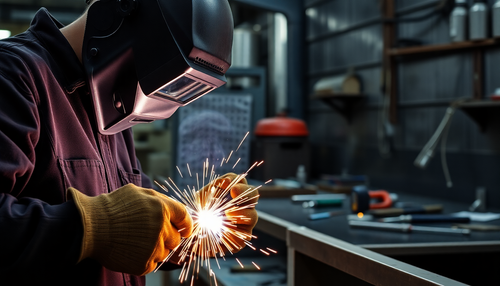
Como fazer uma Solda no Eletrodo Revestido
A solda com eletrodo revestido é uma técnica amplamente utilizada na indústria e construção civil devido à sua versatilidade e facilidade de aplicação. Neste artigo, vamos explorar detalhadamente o...
-
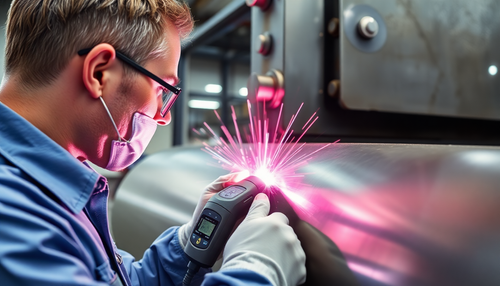
Garantia de Qualidade em Soldas: Os Principais Testes Não Destrutivos
A integridade e a qualidade das soldas são fundamentais em diversos setores industriais, desde a construção civil até a fabricação de equipamentos de alta tecnologia. Para assegurar que as juntas s...
-
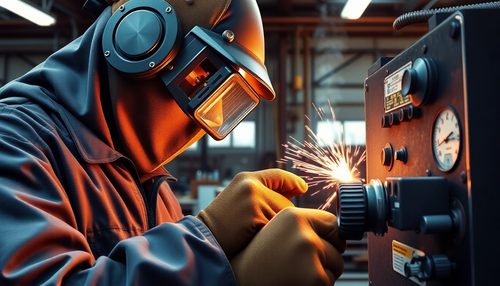
Como ajustar Corretamente a Amperagem na Solda com Eletrodo Revestido
A solda com eletrodo revestido é uma técnica amplamente utilizada na indústria e construção, sendo essencial para a união de peças metálicas. Um dos fatores críticos neste processo é o ajuste preci...
-

Equipamentos de Proteção Individual (EPIs) obrigatórios para Soldadores
A segurança é um fator primordial no ambiente de trabalho, especialmente para profissionais que lidam com atividades de alto risco, como a soldagem. Os Equipamentos de Proteção Individual (EPIs) sã...
-
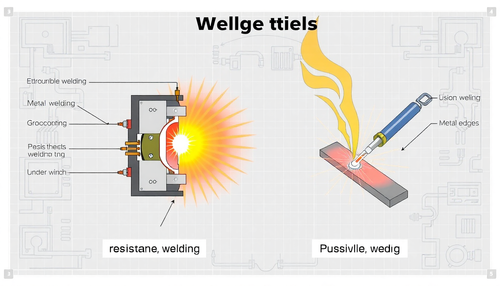
Diferença entre Solda por Resistência e Solda por Fusão: Aplicações Práticas
A escolha do processo de soldagem correto é crucial para garantir a integridade e a eficiência de diversas aplicações industriais, desde a fabricação de automóveis até a construção de aeronaves. Ne...
-
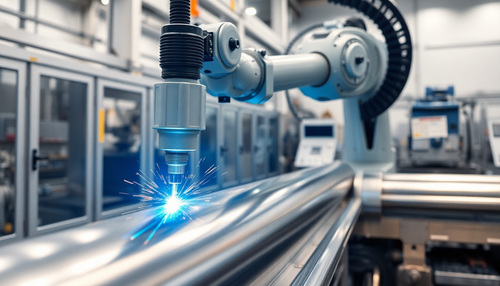
A Soldagem Orbital: Precisão e Eficiência
A soldagem orbital é uma técnica revolucionária que está transformando a maneira como as indústrias abordam a união de materiais. Essa abordagem automatizada e precisa tem se destacado em diversos ...
-
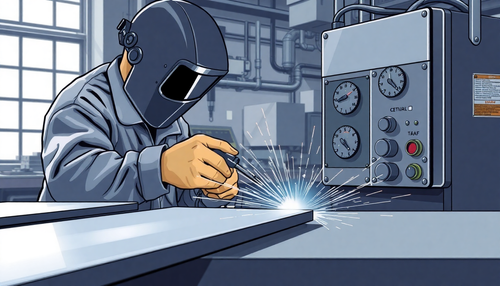
Como Regular sua Inversora MIG para Chapas Finas
A solda MIG (Metal Inert Gas) é uma técnica amplamente utilizada na indústria e construção, conhecida por sua versatilidade e eficiência. No entanto, quando se trata de trabalhar com chapas finas, ...
-
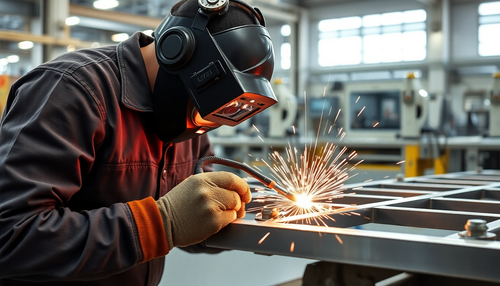
5 Erros Comuns na Soldagem com Alumínio
A soldagem de alumínio é uma técnica desafiadora que requer atenção aos detalhes e conhecimento especializado. Infelizmente, muitos profissionais cometem erros comuns que podem comprometer a qualid...
-
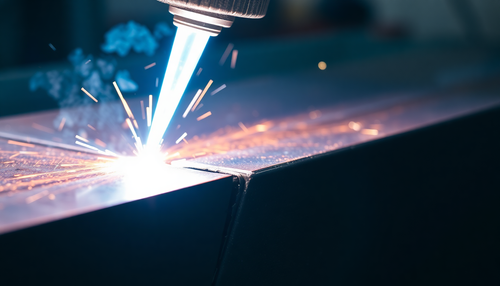
Como Prevenir Trincas a Quente e a Frio em Soldas
A soldagem é uma técnica fundamental na indústria e construção, permitindo a união de peças metálicas de forma eficiente e resistente. No entanto, um desafio comum enfrentado pelos profissionais é ...
-

Soldagem com Arame Tubular: Praticidade, Penetração e Produtividade
A soldagem com arame tubular, também conhecida como FCAW (Flux-Cored Arc Welding), é um processo de soldagem amplamente utilizado na indústria e na construção civil. Essa técnica combina a praticid...
-
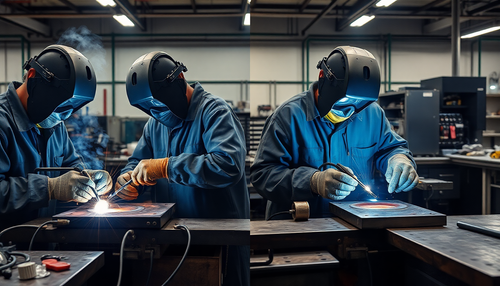
Diferença entre Solda Forte e Solda Branda
A escolha entre solda forte e solda branda é uma decisão crucial para muitos profissionais da indústria e construção. Cada uma dessas técnicas de união possui características únicas que as tornam a...
-
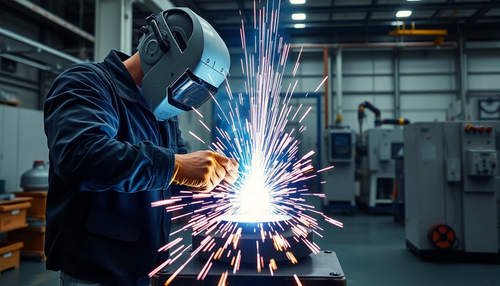
Soldagem por Fricção: Junção de Metais Leves
A indústria moderna enfrenta constantes desafios na busca por soluções de fabricação cada vez mais eficientes e sustentáveis. Nesse cenário, a técnica de soldagem por fricção (FSW - Friction Stir W...
-

Soldagem em Campo: Desafios e Soluções para Ambientes Adversos
A soldagem é uma técnica essencial em diversos setores industriais, desde a construção civil até a fabricação de equipamentos. No entanto, quando a soldagem precisa ser realizada fora do ambiente c...
-
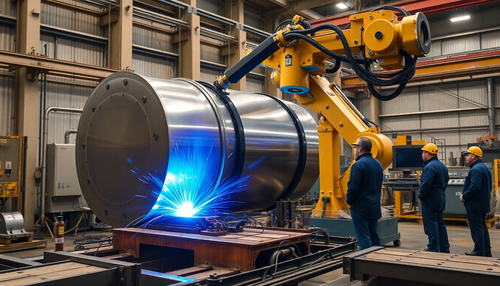
Soldagem por Arco Submerso: Eficiência e Versatilidade na Indústria
A soldagem por arco submerso (SAW) é uma técnica amplamente utilizada na indústria, conhecida por sua alta taxa de deposição e capacidade de soldar chapas grossas e estruturas pesadas. Este process...
-
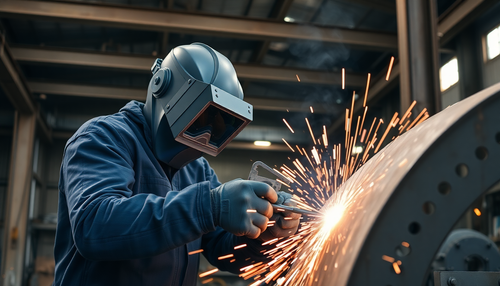
A Solda de Tampão: Unindo Chapas com Eficiência e Resistência
A solda de tampão, também conhecida como solda de pino ou solda de ponto, é uma técnica amplamente utilizada na indústria e na construção civil para unir chapas sobrepostas de maneira rápida, efici...
-

Como obter um Acabamento Perfeito na Solda com Esmerilhamento Correto
Na indústria e construção, o acabamento superficial da solda é um fator crucial para a aparência final e a integridade estrutural de um projeto. Um acabamento mal feito pode comprometer a resistênc...
-
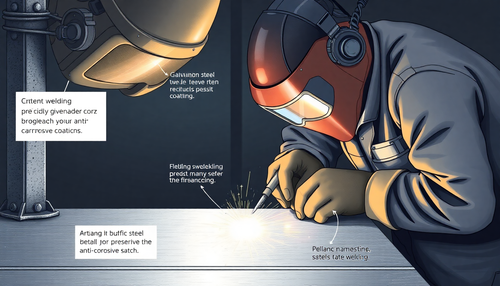
Como Soldar Aço Galvanizado sem comprometer a Proteção Anticorrosiva
A solda é uma técnica essencial na indústria e construção, permitindo a união de peças metálicas de forma segura e eficiente. No entanto, quando se trata de soldar aço galvanizado, existem desafios...
-
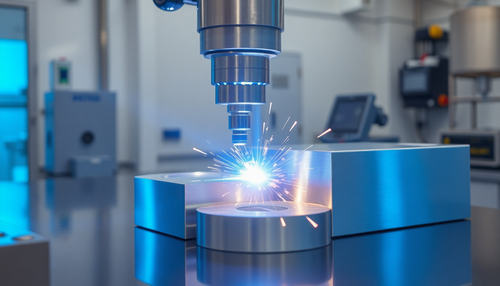
A Soldagem por Feixe de Elétrons: Técnica Avançada para Unir Metais com Precisão
A soldagem por feixe de elétrons (EBW) é uma técnica avançada de união de metais que utiliza um feixe de elétrons acelerados em uma câmara de vácuo para fundir e soldar materiais com precisão milim...
-
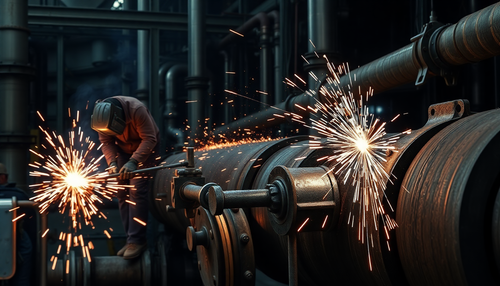
Soldagem em Tubulações: Desafios e Técnicas Essenciais
A soldagem em tubulações é uma tarefa crítica na indústria e construção, exigindo habilidades especializadas e técnicas avançadas. Neste artigo, exploraremos os desafios técnicos envolvidos nesse t...
-
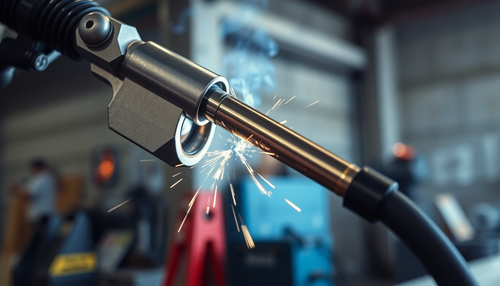
Como o ângulo da tocha afeta a solda MIG
A solda MIG (Soldagem por Gás de Metal) é uma técnica amplamente utilizada na indústria e construção, conhecida por sua eficiência e versatilidade. Um dos fatores-chave que influenciam diretamente ...
-
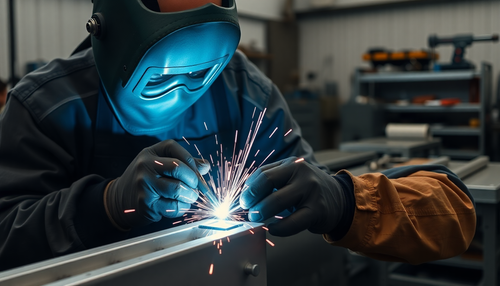
Soldagem em Alumínio: Principais cuidados e Técnicas Recomendadas
O alumínio é um material amplamente utilizado na indústria e na construção civil devido às suas propriedades únicas, como leveza, resistência à corrosão e alta condutividade elétrica e térmica. No ...
-
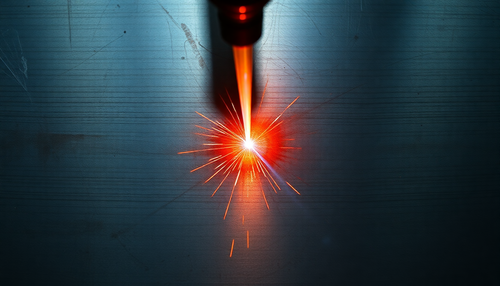
Como lidar com Rachaduras na Solda ao Resfriar o Cordão
A soldagem é uma técnica fundamental na indústria e construção, permitindo a união de peças metálicas de forma eficiente e resistente. No entanto, um desafio comum que os profissionais enfrentam é ...











































































































